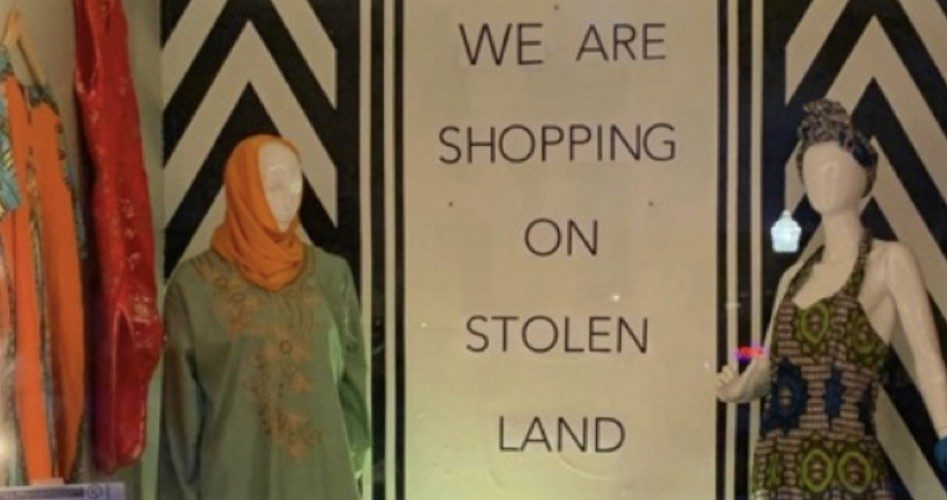
“Sorry that you were too unevolved to grasp our sublime wisdom.” This seems to be the message from a Georgia clothing store doing damage control after levying a booking fee on whites, while offering a “waiver” to “people of color.”
The New York Post reported on the story Wednesday:
A vintage clothing store in Georgia is getting backlash online for a promotion blasted as “racist” that waived a $20 fee for non-white shoppers.
In a since-deleted Facebook post, Civvies on Broughton in Savannah said it would require a $20 refundable deposit to book an appointment at the boutique, while people of color would be exempt from the new policy.
“As a mostly white staff with white ownership, we do not feel comfortable upholding a digital and financial barrier which could prevent BIPOC from shopping at our store at this time on top of the limitations already made by online booking,” the store announced last week.
The shop, which sells new and “recycled” clothing, told potential white customers that they could decline to pay the deposit, but would be contacted by a booking manager to “discuss other options,” the post read.
“If you are white and refuse to put down a deposit because you believe our policy is unethical you will not be accepted for an appointment,” the store’s now-deleted post read.
Relating the criticism the policy inspired, WJCL told us Monday:
“Most of the feedback about our decision to waive this refundable deposit is racist because it favors Black people, indigenous people and people of color,” said store manager, Raine Blunk.
Some of the comments threaten lawsuits and boycotts but Blunk says the promotion does not discriminate against anyone.
“Obviously it is unfortunate to have thousands of people commenting and messaging us saying that they are going to sue us and have contacted the department of labor because this is a violation of their rights, we believe that what we are doing is within the confines of the law,” they said.
Blunk says the businesses main goal is to bring about equality to people of color.
The business, of course, can adopt any goal it wishes, but it is notable that its main goal isn’t to make money.
But having your own goals doesn’t mean you can have your own facts. By definition, Civvies’ policy discriminated against someone — a whole group, in fact.
Don’t tell the owners, though. They wrote on Facebook, “It was not our intention to act in any way that might be perceived as discriminatory and for that we apologize.” Many respondents noted this statement’s spirit, writing comments such as, “‘I’m sorry you interpreted what I did negatively’ is not an apology. You have only demonstrated that you have learned nothing from this.”
This was demonstrated further by manager Blunk, who, under the name Rainé Eliza (photo below), issued his own apology on Facebook. (Article continues below image.)

“This post is to acknowledge harm caused by Civvies’ booking/fee waiver,” Blunk wrote, explaining,
“Phrasing about our booking policy in both the original concept of the fee waiver and the clarifying post about our booking policy was insulting to some Black people, People of Color and Indigenous people.”
“People in my community were and are generally harmed by poorly constructed narratives written by white people about their own racial inequities,” he continued.
Blunk went on to say that the policy “felt like white saviorism” and that it “insulted” non-whites. “Additionally, some of the post was alienating” to some white people, he wrote, “especially those who responded very negatively, for whom a different conversation or platform about racial inequities could have been more educational or informative.”
Translation: It’s the critics who are guilty — of ignorance — and Blunk’s only mistake was not choosing the best way to enlighten them.
He then continued, “Phrasing of the post … could contribute to white readers reinternalizing false narratives about their experiences of ‘racial discrimination against white people.’” So after discriminating against white people, Blunk insists that such discrimination is entirely imaginary (full statement below; article continues below screen-grab).
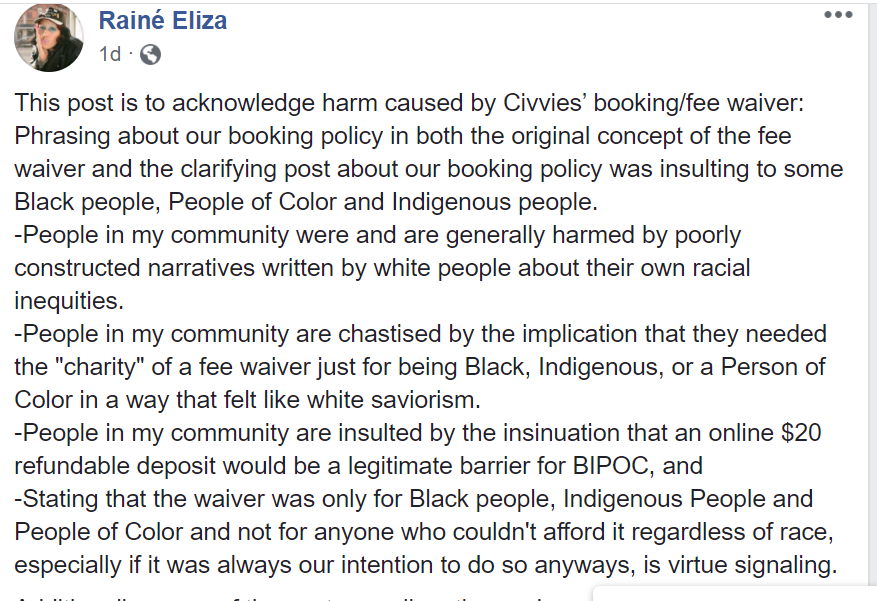
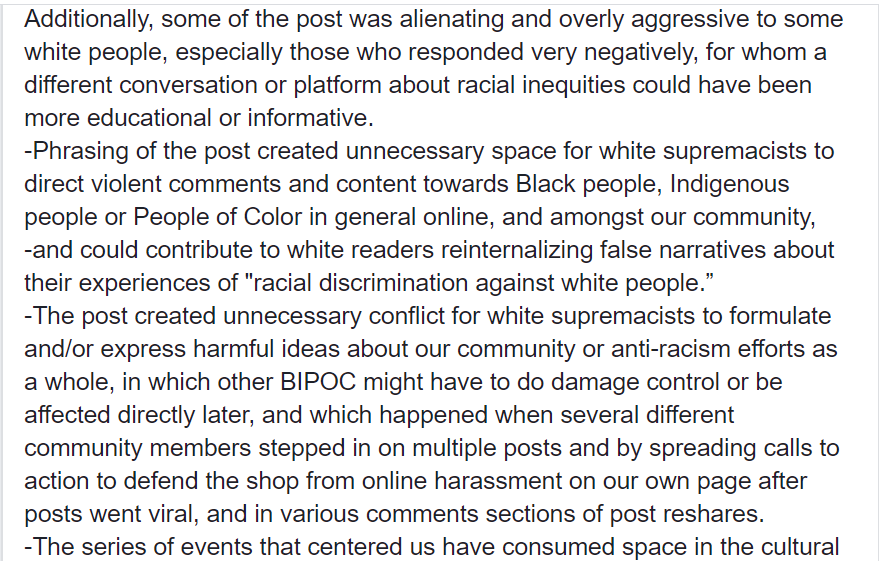
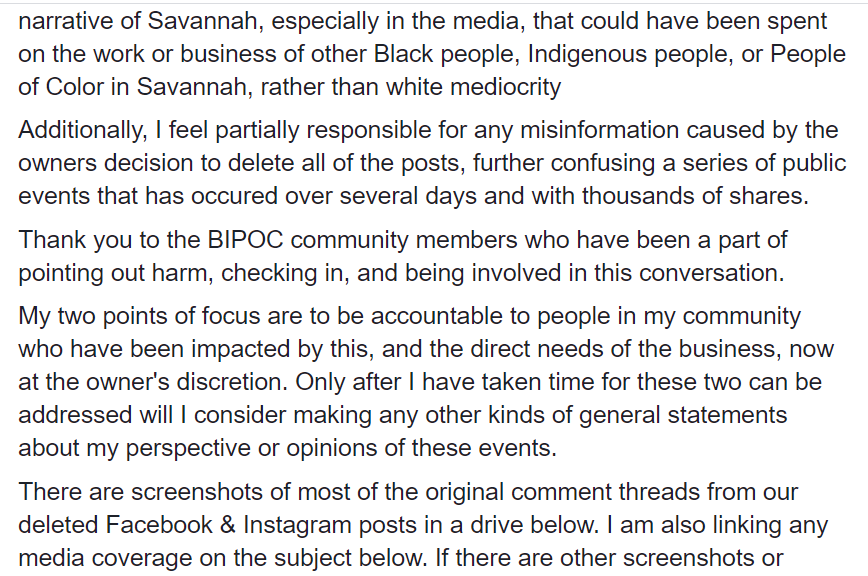
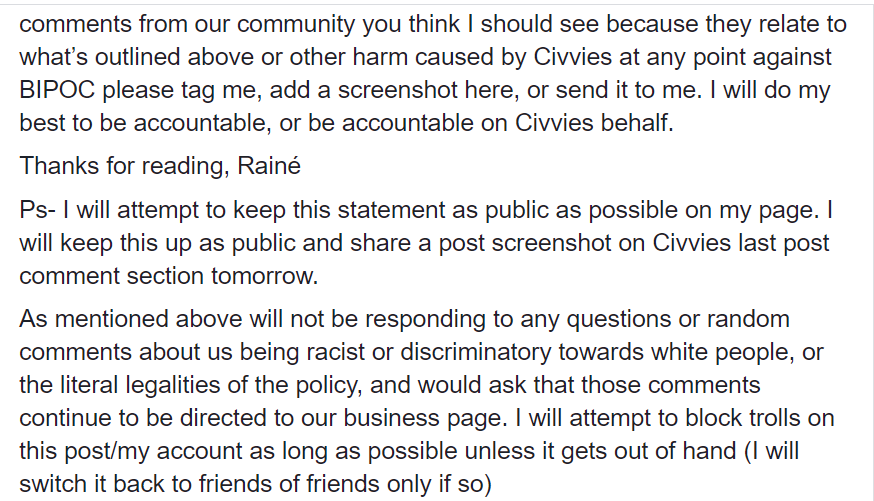
It’s easy to make fun of Blunk or merely dismiss him as tone deaf (and perhaps he is), but the reality is far more dire. It relates to why the “woke” crowd is so self-righteous: They believe they’re right — and lack a Christian emphasis on humility that would temper their efforts at conversion with compassion.
What we’re witnessing here is the clash of two radically different worldviews. If you’re, roughly speaking, 35 and older, you likely were raised with the assumption that racial discrimination is always wrong, period (there can be innocuous exceptions, however, as I explain here); you accept this as dogma.
But many younger people today (and some older ones) were instilled with a different idea: that racial discrimination, by a different name, is a positive force and necessary to achieve “equity.” Striving for equitable treatment is how the Left justifies the denial of equal treatment.
In fact, masters at word manipulation, the wokesters won’t even agree that “discrimination” is what you assume it to be.
Of course, just as “equality” was emphasized by liberals decades ago, equity is emphasized by liberals today — though they’re different liberals. It’s another example of how liberalism (and conservatism) isn’t an ideology as much as a process, as I explain here and here.
As for Civvies on Broughton, it’s tempting to say “Get woke, go broke.” Do note, however, that a message on its storefront states, “WE ARE SHOPPING ON STOLEN LAND” (they can always give it back, no?).
If that hasn’t alienated their clientele, it’s hard to imagine that some pesky little anti-white discrimination would bother them.
Image of Civvies on Broughton storefront: Screenshot of Civvies facebook page
Selwyn Duke (@SelwynDuke) has written for The New American for more than a decade. He has also written for The Hill, Observer, The American Conservative, WorldNetDaily, American Thinker, and many other print and online publications. In addition, he has contributed to college textbooks published by Gale-Cengage Learning, has appeared on television, and is a frequent guest on radio.



